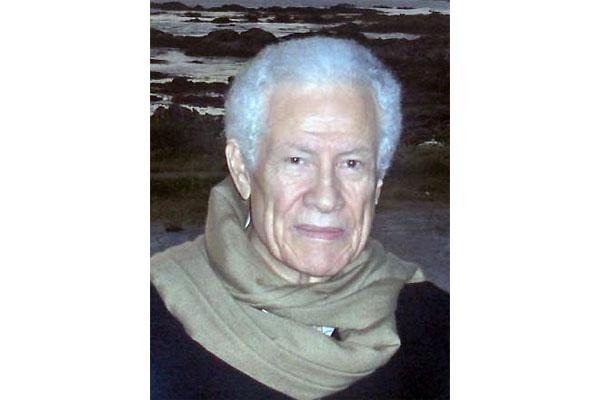Mershon Professor Saad Nagi Passes Away at 91

Saad Z. Nagi, Mershon Professor of Sociology and Public Policy from 1970 to 1990, passed away on February 9 at age 91.
Nagi had a long and rewarding association with The Ohio State University starting when he was hired as an assistant professor in the Department of Agricultural Economics and Rural Sociology in 1958. He held faculty appointments in the Department of Sociology and Department of Physical Medicine and Rehabilitation, and served as chair of the Sociology Department from 1982 to 1989.
Nagi "lived an extraordinary life of deeply-felt purpose," his daughter, M. Karima Nagi, said. "My father’s body of work was devoted to issues of social justice on many levels."
Nagi’s work as an early medical sociologist at Ohio State led into his foundational research in the field of disability and his 1965 “disablement model” framework, characterizing disability as a social and environmental phenomenon. This framework has had a significant impact in multiple disciplines, as well as on legislation and practice related to disability.
In the 1970s, Nagi was principal investigator on a national survey of professionals who have primary roles in reporting and dealing with child abuse cases. As a component of this study, he developed a method for calculating the nationwide incidence of child maltreatment.
In the 1980s, Nagi’s research interests expanded into issues related to social justice, including social movements and development, democratization, ethnic identification, social stratification, mobility and poverty. His study on poverty in Egypt was the first of its kind. It remains the only scientific study of its kind throughout the Middle East.
Nagi won the Distinguished Scholar Award at Ohio State in 1982. His papers, housed at Ohio State University Library, contain publications, correspondence, and writings, with materials of special interest pertaining to governmental programs and policies concerning impairment and disability, child abuse, and rehabilitation.
Following his retirement from Ohio State in 1990, Nagi served as research professor and director of the Social Research Center at American University in Cairo until 1995. This intensified his focus on societies of the Middle East. He remained engaged in these interests through consultation work, writing and publishing independently through the 2000s.
Nagi’s final project, proposing an international organization to aid nations in developing democratic institutions, will be made available posthumously.
"The common thread throughout my father’s professional life has been the conviction that to educate oneself and to be treated with dignity in life are human rights," Karima Nagy said. "He was a lifelong educator and seeker of knowledge and took great pleasure in interacting with students, colleagues, family and friends from every corner of the world. His own narrative was one of dignity, humility and integrity in his personal conduct and respect and compassion for others."
Nagi’s books include Poverty in Egypt: Human Needs and Institutional Capacities (Lexington Books, 2001); Disability: From Social Problem to Federal Program, with Irving Howards and Henry P. Brehm (Praeger, 1980); Child Maltreatment in the United States: A Challenge to Social Institutions (Columbia, 1977); and Disability and Rehabilitation: Legal, Clinical, and Self-Concepts and Measurement (Ohio State, 1969).
Underlying Nagi’s lifelong body of work was a belief that understanding the conceptual and theoretical underpinnings of research and the role of research in society is indispensable in the pursuit of scholarship and practical knowledge. Toward this end, Nagi and colleague Ronald G. Corwin collected chapters from a number of scholars in the edited volume The Social Contexts of Research (John Wiley and Sons, 1972). Nagi and Corwin contributed jointly authored chapters on the nature of research and an illustrative case analysis of educational research.
Nagi served on a number of advisory committees on research and demonstration grants in the U.S. government, including the Welfare Administration, Social Security Administration, Rehabilitation Services Administration, Maternal and Child Health, National Cancer Institute, Administration on Children, Youth and Families, and was a board member at the American Hospital Association and at Triglav Circle, whose mission is to promote an approach to international relations and public policy grounded in moral and spiritual values expressed in ethical norms and behavior.
He also served as a consultant on research programs in many universities, as well as to international organizations including the World Health Organization (WHO), the United Nations Development Program (UNDP), and the World Bank. He testified before committees of the U.S. Congress on issues related to social security, disability and child welfare.
A memorial for Nagi will be held on Saturday, April 8, at 2 p.m. at Rutherford Funeral Home, 450 W. Powell Road in Powell, Ohio, followed by a buffet dinner at the Nagis' home, 5455 Indian Hill Road, Dublin. For more information, see http://sznagi.com.
